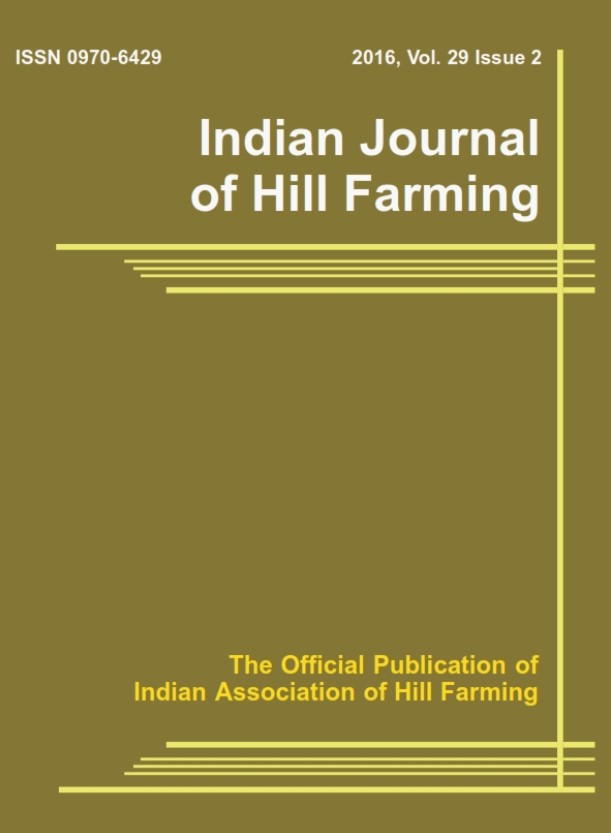Weather variations and its effect on farm productivity and returns in Imphal West district of Manipur
Keywords:
Weather variations, rainfall, extreme weather events, farmers’ perceptions, ManipurAbstract
Weather variations refer to the changes in the meteorological factors observed locally over a short period of time. Since farming is dependent on these factors, any changes in it will lead to change in the level of crop production. Therefore, the present study was conducted with the objective of studying the weather variations in the selected villages and its effect on farm productivity and returns. A sample of total 107 farm households was selected from two blocks of Imphal West district using simple random sampling technique without replacement method. Findings about the effect of weather variables on crop production using secondary data were mostly inconclusive with the exception of positive effect of pre-monsoon rainfall on pre-kharif paddy production and the negative effect of average annual maximum temperature on total oilseed production. Farmers perceived that the summers were warmer and winters were colder in the last 5 years (2016-2020). The majority reported a rise in unexpected rainfall but a decrease in the number of rainy days. Most of the households reported that extreme weather events (EWE) caused up to 20 per cent loss in net household returns. The average loss was 19.55 per cent in net household return and 33.75 per cent in case of net farm return. Hence, the study suggests encouragement of farmers to diversify their enterprises in order to reduce the extent of farm losses brought on by EWE as it provides access to additional sources of revenue outside of crop farming.




